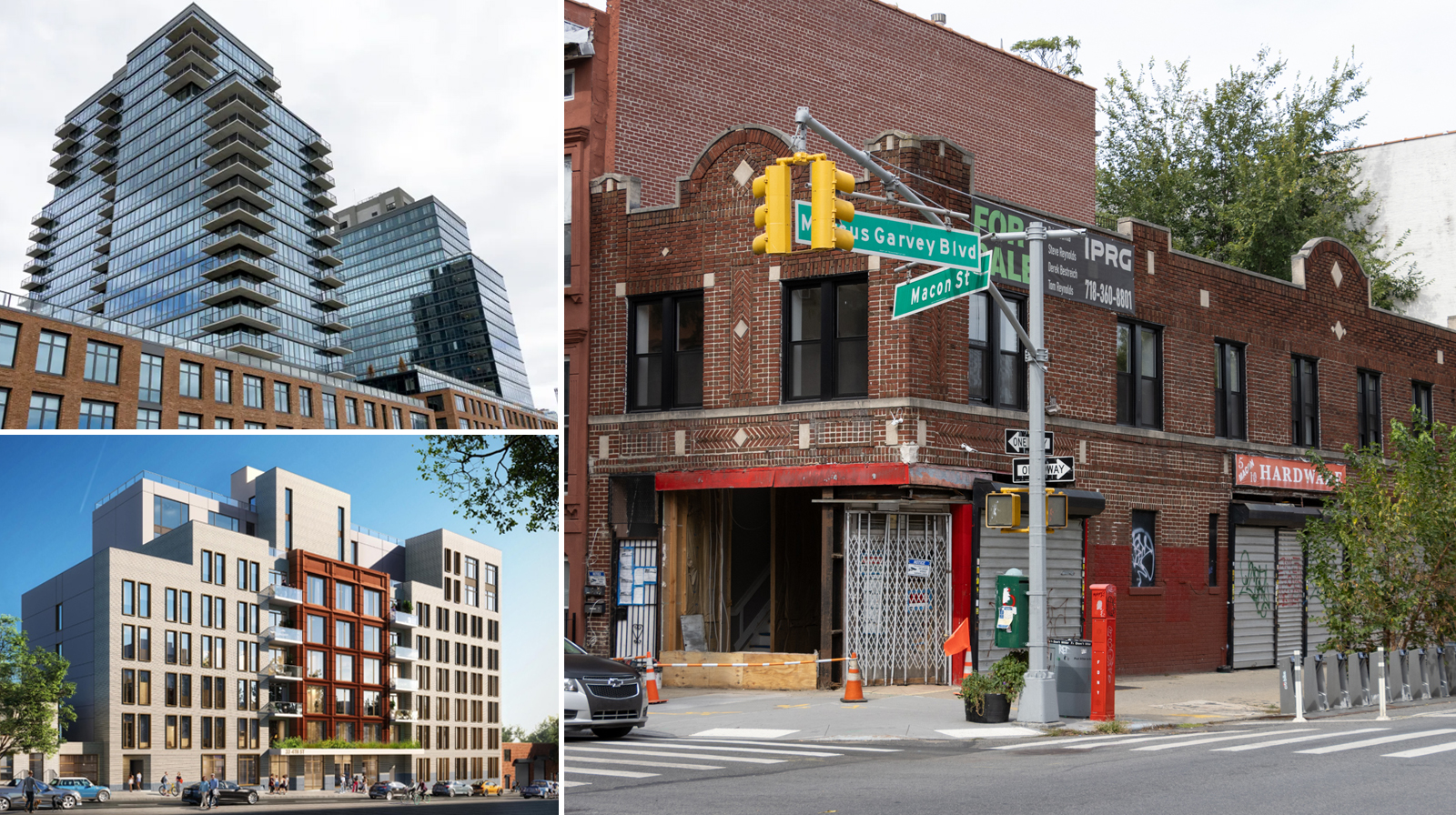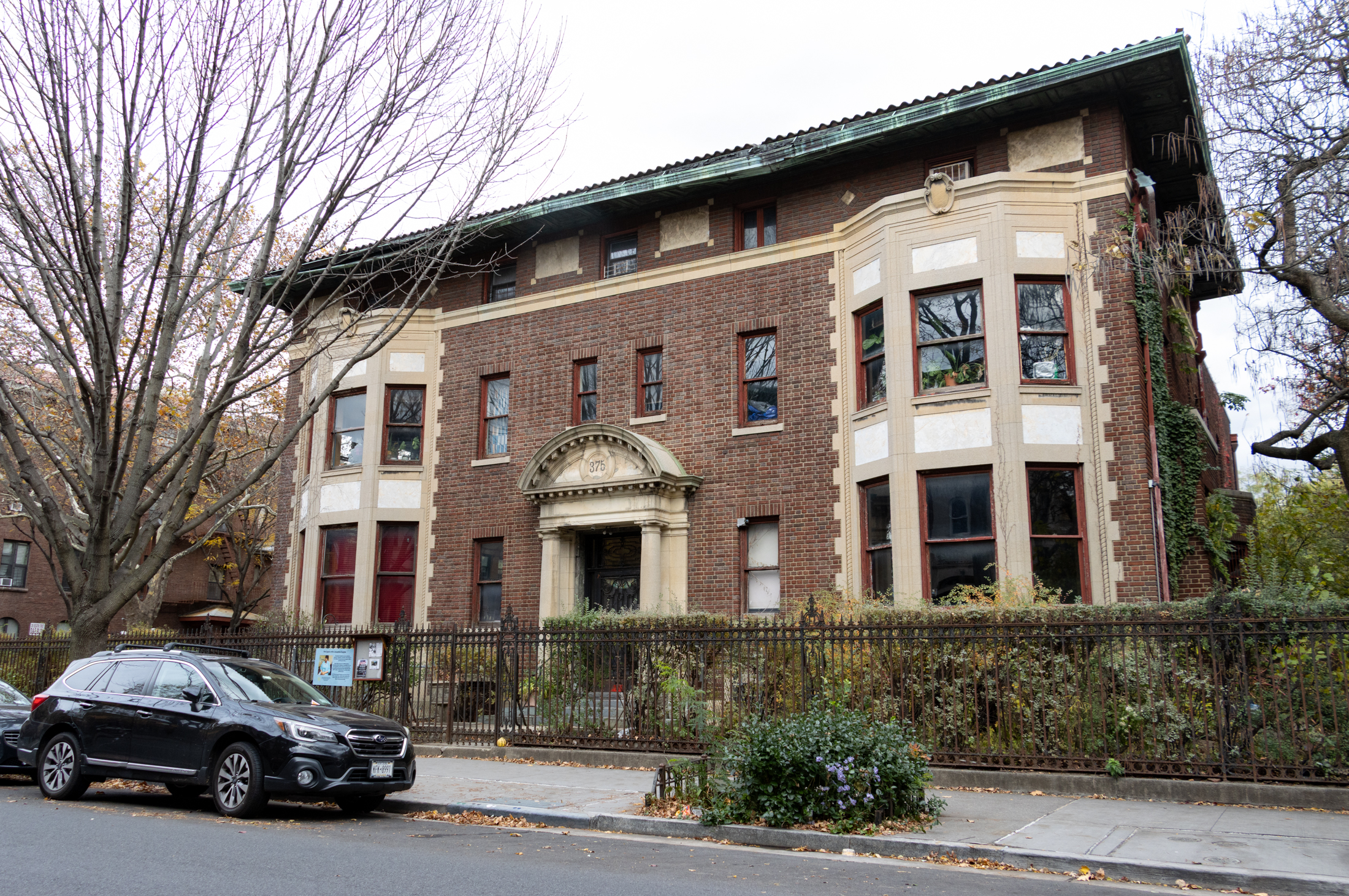Tenants Fight Eviction on Bergen Street
A Prospect Heights block party yesterday had homemade food, loud music and a louder message: Good neighbors do not evict neighbors. The Fifth Avenue Committee-organized event was aimed at drawing attention to the plight of four rent-stabilized tenants facing eviction from 533 Bergen Street, and it highlighted bubbling tensions over affordable housing, gentrification and Atlantic…


A Prospect Heights block party yesterday had homemade food, loud music and a louder message: Good neighbors do not evict neighbors. The Fifth Avenue Committee-organized event was aimed at drawing attention to the plight of four rent-stabilized tenants facing eviction from 533 Bergen Street, and it highlighted bubbling tensions over affordable housing, gentrification and Atlantic Yards. Councilmember Letitia James, State Senator Velmanette Montgomery and various activists spoke in support of the longtime tenants, who are fighting lawsuits from 533 Bergen’s new owners. The two couples that bought the building last year—Dan Bailey and Felicity Loughrey, along with Deanne Cheuk and Andre Wiesmayr—claim they want to evict the tenants because Bailey and Loughrey intend to construct a triplex for themselves out of the units. Under current laws, landlords of rent-stabilized buildings are allowed to evict tenants if they plan to live in the units themselves.
Most speakers called for reforming rent-regulation laws and maintaining affordability for low-income residents. Rents in Prospect Heights are increasingly beyond the means of most working-class families, said Councilmember James. We must preserve this community’s diversity. James and Senator Montgomery both characterized the push to evict 533 Bergen’s tenants as secondary displacement from Atlantic Yards. Brent Meltzer, a lawyer with South Brooklyn Legal Services who is representing one of the tenants, noted that if the landlords succeed with the evictions, 3,500 square feet that four families live in will be given over to just one family. The most basic articulation of the situation, however, came from Rosa Negron, one of 533 Bergen’s residents: How you going to evict people who’ve been living here all these years?





This address is going to be watched carefully so I am sure the new owners will occupy it or get sued.
Guest at 1pm. That is the way to do it, but others on this board think that is unfair to poor people. If someone is poor, they believe that such people should be able to stay in a particular place as long as they wish too, regardless of changes to a neighborhood, property values etc.
12:46: you make “low six” and still need rent control help? wow. I’ll bet you could be making high six, and you’ll be in the same “shithole”.
You have too many leakages.
12:46 you are not living within your means as you claim. You are being subsidized by your landlord and you are far from needy. And despite the seemingly pleasant tone of your post your attitude is essentially “I got mine so there.”
I bought when I had no money, and did it as a single working class female by (1) saving every cent I otherwise would have paid in rent for eight years when I had a stabilized apt in Manhattan and (2) buying in a neighborhood that none of my friends would visit. I had to fight banks to get a mortgage, since the neighborhood was still redlined. It was called Clinton Hill. My parents wept and my friends said I’d be dead in a year. Twenty years later, I have a lovely triplex and the rental income pays the almost-demolished mortgage…and the same people think I was smart to buy then. It wasn’t a strategy (never thought of it as an investment), but if you work in NYC and want to own, it still makes sense to me to go further out near public transportation, buy an affordable place with enough space to grow into in an area that nobody considers chic, and put down roots. Where there’s a will there’s a way.
I live in a rent stabilized apartment on Ocean Parkway in Brooklyn (Kensington). The apartment is a huge 2 bedroom with 1-1/2 baths, and my husband and I pay just under $1600 a month. The building was once grand, has now seen better days, and could use some renovations (however, it is kept clean, the elevator always works, we have plenty of heat and hot water, and the laundry machines are all new). If you are familiar with the area, you know it is diverse (racially and economically), relatively safe, and not at all hip. Many say the area is ripe for gentrification. I’m not so sure. My neighborhood and building are what many people on these boards would call a shithole. So be it. This apartment allows me to work at a job I love, allows my husband to stay at home with our kid while working on a screenplay and freelancing as a writer, and allows us to live in the city within our means. I make in the low six figures, and I have to tell you, that’s not much in this city, and I am grateful for the laws that protect us in this apartment. We got priced out of Carroll Gardens (after living there for 16 years) and it hurt, but I accept the fact that when I should have bought I had no money, and when I finally had money it wasn’t enough. So there you go. I’m a rent stabilized apartment dweller cira 2007. Have at me.
“Please remember that these laws were created because of the abuses perpetrated by landlords when there was no regulation to protect tenants.”
These laws were created after/during WWII to protect against profiteering in an artificially unbalanced market (i.e. returning GIs, migration due to war jobs available and displaced workforce).
Why do these folks get to have rent stabilization while others get to pay market rates? This is an idiotic situation that needs to end soon.
12:27, I’m with you.
As for the comment “I, for expample, have a rent stabilized tenant who has shown me his stock portfolio of over 1 million dollars, but he loves his cheap rental and will never move.” — I believe that if that’s the case, you can decontrol his apartment, so I’m not sure what your grip is.
“I, for expample, have a rent stabilized tenant who has shown me his stock portfolio of over 1 million dollars, but he loves his cheap rental and will never move…
Why should folks who don’t want to work be able to live off welfare in rent controlled privately owned housing?”
On the one hand, that nefarious speculator who games the system to pay low rent; on the other, that low-life who just refuses to work, sucking up all your hard-earned dollars. Why, where is the 2nd cousin, thrice removed living in up in his dead grandmother’s classic eight on $200/mo?
Isn’t this just a bit tired.
Can’t we retire these straw-men and look seriously at who the majority of rent-stabilized folks are: the service industry folks and public servants, the young couples and immigrants working their way up, the older neighbors who have kept watch over the neighborhood through good and bad, my students who come to class exhausted after leaving third-shift.
We may not agree on what should be done, but at least we’ll be talking honestly about who they are.